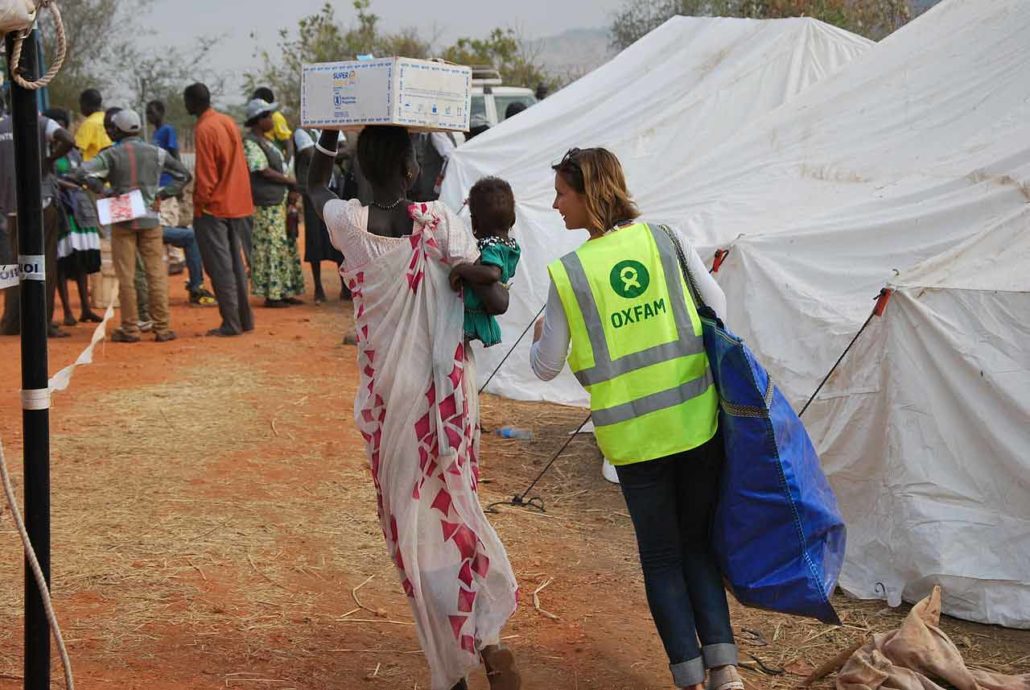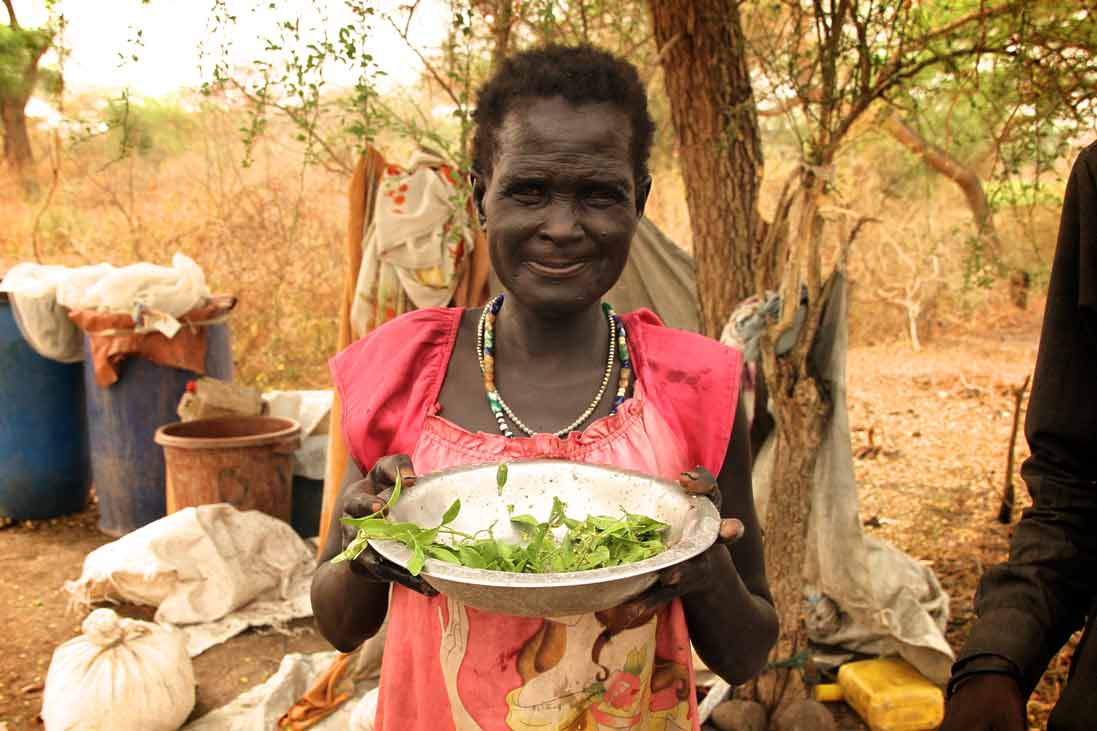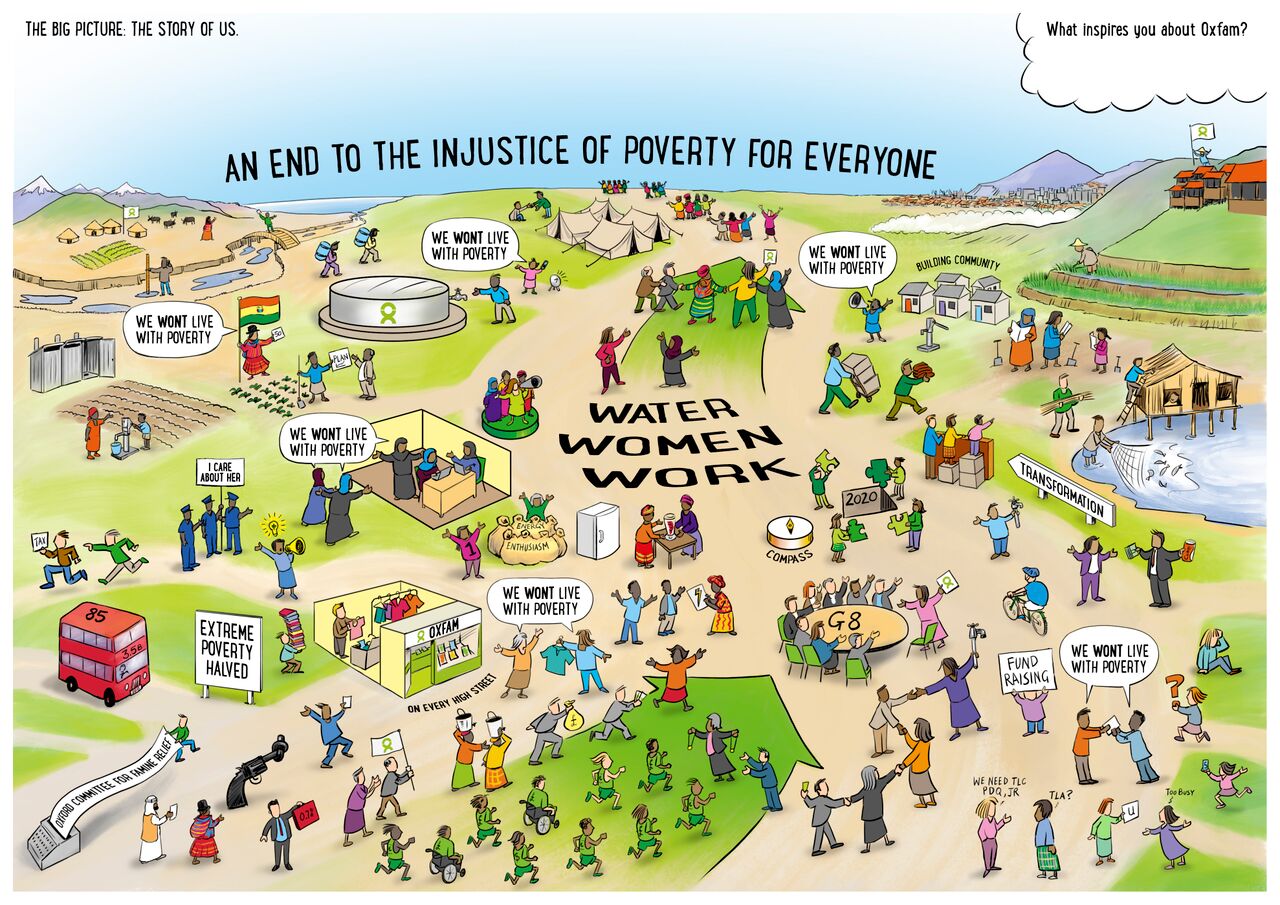Oxfam’s challenge
Oxfam is a global movement of millions of people who share the belief that, in a world rich in resources, poverty isn’t inevitable. The movement is shaped and coordinated by a globally renowned aid and development charity with 70 years of experience.It represents an international confederation of 18 organisations working together with partners and local communities in more than 90 countries.
“We always talk about how we’re a movement of people working towards the eradication of poverty together, but sometimes we get so caught up in the day-to-day tasks and occasional politics that it is easy to forget how cohesive a movement we actually are.”
Workshop participant
Oxfam GB has a narrative designed to tell others about what Oxfam stands for and what it does. It needed a process to take this narrative off the page and help its people explain the scope of what Oxfam does, sharing the same vision and direction, and building their confidence in talking about Oxfam in a meaningful way. The objectives of the work were to create “ownership” of the narrative amongst direct employees and volunteers and to build more sense of shared purpose and goals.
“I could intellectually “get” the organisational story on a set of slides but it was only until I had a conversation about it that I started to really remember what an amazing place Oxfam is to work (something which I think can get lost in the everyday emails and to do lists). I started to re-connect emotionally with Oxfam again and went away feeling more positive and uplifted than I have for a while.”
Workshop participant
What we did
We worked with an in-house team drawn from various roles across Oxfam to design a large scale intervention that would reach the whole organisation. First, we created a visual representation of the Oxfam story which drew on a series of facilitated discussions. These used facilitation techniques designed to enable people to talk about what really inspires them. A larger group of Oxfam staff were then trained in how to use the visualisation to have similar conversations with people throughout the organisation, where they could share their stories about what motivated them.
During this process, the number of people who strongly agreed that they had a strong sense of shared purpose with Oxfam and that they understood the organisation’s priorities nearly doubled.
“This made me feel again – it re-inspired me. And it also managed to succinctly explain this enormously complicated organisation that is usually so hard to talk about without downplaying the complex and thoughtful approach we have to overcoming poverty.”
Workshop participant







